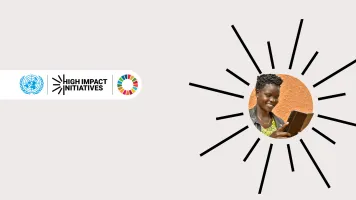On September 22, 2024, following a long and arduous negotiation process, the Pact for the Future was adopted at the UN Summit of the Future in New York. The Pact is the most wide-ranging international agreement in many years. It includes a Global Digital Compact (GDC), and a Declaration on Future Generations, and covers a broad range of issues including peace and security, sustainable development, financing, climate change, science and technology, human rights, gender, youth, and the transformation of global governance to meet challenges in all those areas.
At a time when global alliances are fraying and trust in international institutions is waning, agreeing the Pact was no small feat. While these documents could be criticized for being heavy on aspirational statements and light on concrete enforceable commitments, there is real value in articulating a commonly agreed vision for a more modern multilateral system. Going forward, states, businesses, civil society, and citizens can point to the Pact and leverage its commitments to shape future action and hold leaders’ feet to the fire.
Most relevant to the Global Partnership’s mandate is the Global Digital Compact (GDC). The GDC is the first comprehensive global framework for digital cooperation. Grounded in human rights and international law, the GDC includes commitments on connectivity, online safety and AI governance through the establishment of a multidisciplinary Independent International Scientific Panel on AI and a Global Dialogue on AI governance in the margins of UN conferences and meetings.
New technologies, including AI, are being developed in a moral and legal vacuum, without governance or guardrails… The Global Digital Compact is based on the principle that technology should benefit everyone.
- UN Secretary General, opening remarks, Summit of the Future
Importantly, the GDC also includes commitments to increase financing for data and make it more open and accessible. It also gives us the first global commitment to data governance, placing it on the UN agenda and requiring countries to take concrete actions by 2030. This blog outlines three reasons we should see the GDC as a win for digital cooperation, and why.
A North Star to guide action
The Summit of the Future set out to renew multilateral governance in response to the complex challenges of the twenty-first century. New and emerging technologies and the data that powers them are relatively ungoverned at the global level, and yet they are the areas of the most significant and rapid change. The adoption of the GDC in the UN gives us a globally agreed framework, enabling more unified and aligned policies and practices. It acts as a North Star to guide actors at all levels within, and around, global and local digital ecosystems.
With a few exceptions, the principles and specific actions in the GDC are not new. However a noteworthy achievement is that it brings together into one document critical aspects of digital cooperation that have often been addressed in silos and in a way that is rooted in human rights.
As the global community pushes ahead into new frontiers with new technologies and advancing AI, it is essential to have a common normative underpinning and a vision for digital cooperation that member states and all other stakeholders can use as a guide to regional, national, and local digital transformation.
A meaningful step on multi-stakeholder participation
The GDC was born of a highly consultative process, with more than a year of consultation across stakeholders before formal negotiations even began. Its success, both as it’s written, and to the extent it will be achieved, relies on multi-stakeholder engagement and implementation. This is baked into the text which refers to the essential role of multi-stakeholder engagement throughout the document and enshrines multistakeholderism as a core principle:
Governments, the private sector, civil society, the technical community, academia and international and regional organizations, in their respective roles and responsibilities, are essential to advance an inclusive, open, safe and secure digital future. Our cooperation will be multi-stakeholder and harness the contributions of all.
- Global Digital Compact, section 8 (k)
Multi-stakeholder engagement was a contentious topic in the negotiations and an issue that many stakeholders advocated for in the consultations and written inputs. They highlighted that technology is not and will never be entirely in the purview of governments. Private companies have a critical role to play as leaders of technology development and deployment, technical communities and academia are on the cutting edge of understanding the opportunities and risks of new technology, and civil society and community groups play a critical role in representing the people who are most affected by its use.
It’s a testament to multi-stakeholder advocates and member state champions that there are so many strong markers for multi-stakeholder engagement in the final text. At the same time, it should be acknowledged that there are many versions of ‘multi-stakeholder’, and having these words in the GDC text will not guarantee fully inclusive or representative participation. Nevertheless, the aspiration for truly multi-stakeholder engagement is an important achievement.
A concrete process on global data governance
As we have argued elsewhere, there currently is no globally recognized framework for data governance. Important progress has been made through the development of legislation, regulation, and policies by national governments, regional bodies, and within sectors. But the resulting system is a patchwork. This leads to inconsistencies and gaps that can be exploited, results in missed opportunities for innovation, and contributes to worsening inequalities. The GDC recognizes this problem and offers a concrete action to begin addressing it.
The GDC commits countries to “promote and support interoperability between national, regional and international data policy frameworks.” It tasks the Commission on Science and Technology for Development (CSTD) to establish a working group to launch a “comprehensive and inclusive multi-stakeholder dialogue on data governance at all levels and as relevant for development.” It also requires the Commission to report back to the General Assembly in two years.
In a document that is heavy on general statements and light on specifics, it’s notable that the GDC assigns a specific UN body to take on global data governance and gives them a deadline.
This is a significant achievement because the data that drives digital technologies is often left by the wayside in the hype around digital transformation, and there was a real risk that would happen again in early days of the GDC consultations. And yet, realizing the full potential of digital technologies and guarding against their risks requires that data is governed in a way that protects people and promotes sustainable and equitable development. The GDC takes a critical step forward by acknowledging the foundational role of data and setting a process in motion to work towards interoperability between data governance frameworks in a setting where all countries and all stakeholders can engage.
Next steps: what got us here won’t get us there
The GDC is a win for digital cooperation and takes some meaningful steps, but… there’s work to be done.
In taking forward the commitments in the GDC, there is a real opportunity to be creative. The processes set in motion by the GDC, including the discussions on global data governance in the CSTD and the concrete actions on AI governance, do not need to follow the patterns of the past. Digital cooperation demands genuine multi-stakeholder participation. It is a cross-cutting topic that requires drawing on expertise from across governments, technical communities, and international institutions. We are eager to engage in and support innovative approaches to take the GDC forward.
Success on the data governance stream requires engagement of the data community. Partnerships and collaborations will be essential in operationalizing the GDC. This is work we’ve been doing for a long time, alongside our network of over 700 partners. We are co-leading the Power of Data high impact initiative with the UN and World Bank which brings together pathbreaking countries that are mobilizing to transform their data systems for the 21st century. We are eager to support the Power of Data countries and our broader network of partners to contribute to the implementation of the GDC.
Photo: The Summit of the Future Opens at UN Headquarters, New York City. The General Assembly started the meeting by adopting the Pact for the Future Resolution, along with the Global Digital Compact and Declaration on Future Generations annexes. Credit: UN Photo/Mark Garten.



